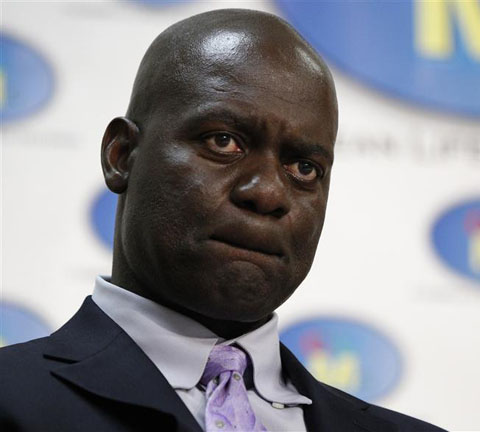A judge has
dismissed sprinter Ben Johnson’s $37-million lawsuit against the estate of his former lawyer.

Johnson originally sued Edward Futerman for $6 million for negligence and breach of trust in 2007, and upped the ante after the lawyer’s death in 2008 with a string of new allegations over lost payment opportunities and Futerman’s alleged failure to monitor his agents.
But Ontario Superior Court Justice Carole Brown was unimpressed with Johnson’s claims, granting summary judgment to Futerman’s estate.
“I am satisfied, based on all of the foregoing, that the defendants have satisfied the onus on them to establish that there is no genuine issue requiring a trial,” Brown wrote. “I do not find that the responding party has satisfied the shifting onus on it to thereafter establish that there is a genuine issue requiring a trial. Moreover, I have found the issues to be statute-barred.”
According to the decision, the only evidence produced by Johnson on the motion for summary judgment was an affidavit by his biographer, Di-anne Hudson, who only met Johnson in 2001, about a decade after the events that led to the claim.
Johnson hired Edward Futerman within days of having his gold medal stripped from him following a positive drug test at the 1988 Seoul Olympics.
Futerman represented Johnson at the Dubin inquiry into the use of banned substances by Canadian athletes, and helped secure his reinstatement as an amateur runner in 1990.
According to Brown’s decision, Futerman was also key to the Canadian Olympic Association’s decision to overturn its life bans on those caught using steroids, allowing Johnson to return to competitive running for Canada at the following Olympics in Barcelona in 1992.
In the lawsuit, Johnson claimed his then-agent Larry Heidebrecht had lined up a $1-million comeback rematch with Carl Lewis, the man who trailed in behind Johnson’s world record breaking time in Seoul, as well as a $500,000 exclusive interview with Germany’s Stern Magazine. Instead, he claimed Futerman was negligent in advising him to speak with the Toronto Sun for nothing, and to take a nominal fee for his first appearance at a Hamilton, Ont. track meet.
Brown found Johnson’s own evidence on discovery confirmed that he approved the decision to speak with the Canadian news outlet first, and in any case, she found “the advice given to be either a business/public relations decision, or at most, an error in judgment, which at law, does not constitute negligence.”
Futerman’s estate claimed the lawyer had made efforts to make the comeback race happen, and blamed its failure on the death of the promoter in a car crash. Brown concluded the allegation had “no substantial merit” and was statute barred.
In addition, Johnson blamed Futerman for an alleged $750,000 shortfall in his Athletic Reserve Fund, a trust fund system for athletes administered by Athletics Canada, and alleged the lawyer authorized improper payments from the account to himself and Johnson’s manager.
But Brown decided Johnson’s claim that Futerman was responsible for monitoring his agents to make sure money owed to him ended up in the account was meritless, and not supported by the retainer agreement signed by the pair. Brown also noted Johnson’s admission in discovery that he sometimes took cash payments for races in Europe “which were not reported by himself or his former agent, nor remitted to the account.”
Futerman’s estate argued the allegations of improper payments were also meritless, because no money could be removed from the ARF account without signed directions from Johnson, and Brown agreed there was no evidence to support the claim.

 Johnson originally sued Edward Futerman for $6 million for negligence and breach of trust in 2007, and upped the ante after the lawyer’s death in 2008 with a string of new allegations over lost payment opportunities and Futerman’s alleged failure to monitor his agents.
Johnson originally sued Edward Futerman for $6 million for negligence and breach of trust in 2007, and upped the ante after the lawyer’s death in 2008 with a string of new allegations over lost payment opportunities and Futerman’s alleged failure to monitor his agents.